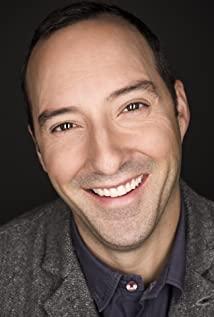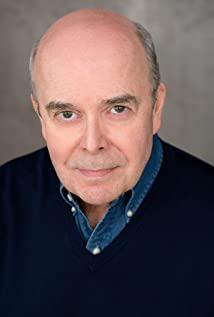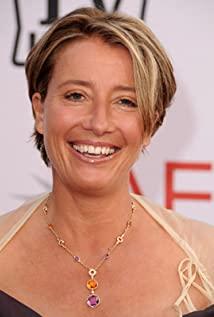Strange voice
"This is a story about a man named Harold and his watch. Everything about him is related to numbers. He keeps calculating and speaks a little less, and his watch is even more pitiful. Words are like gold. For 12 years, every working day, Harold will brush his 32 teeth 76 times, 38 times left and right, and 38 times up and down. Every work day for 12 years. On the day, he wears a tie with a Wensha knot instead of a double knot, which can save 43 seconds..."
With the voice-over, the camera focused on the protagonist Harold from the full mirror overlooking the city. A person who obeys the rules and is immutable, an ordinary and unremarkable person among all living beings, alone, the only thing he is good at is dealing with numbers. In his eyes, what he saw in this world was not the scenery, but the concrete figures reflecting the measurement of size, distance, time, etc.
When we thought that the voice-over was just the narration of the film, Harold, as the person being described, even heard this "voice-over." He was startled, and we were also a little surprised. However, as viewers, we are just curiously looking forward to how the story will develop, while Harold becomes anxious, troubled and innocently regarded as schizophrenia by others. The setting of the film is very ingenious. The strange sound that breaks through the convention allows the audience, the protagonist of the film, and the currently unknown third-party narrator to have an interesting interaction. The audience seems to be in the same position as the characters in the film, together with the desire to find answers, the film is even more fascinating.
At the same time, the film began to insert a female writer encountered a creative bottleneck. She couldn't find the most suitable way to die for the hero of her novel, and she couldn't finish the draft for a long time. Through some details, we can probably know that poor Harold is the protagonist in the novel by the female writer. At this time, the two lines of Harold and the writer are developing separately, which makes people feel that it may be a "play in play" structure.
Through the literature professor played by Dustin Hoffman, the two clues gradually approached. In a video, Harold discovers the source of the strange sound that bothers him—the female writer who is thinking hard about the end of the novel. The two clues converge, and the most surprising thing is that the two have developed in parallel in the same space (not a general "play in play"), and the female writer is writing about Harold's real life!
Controlled or controlled life After
this strange sound appeared, Harold's life was disrupted. When he started a day of boring and repetitive actions and schedules, that voice made Harold also had to stop and examine his unchanging habits in a disgusting tone. In fact, he doesn't like his work and his life, just like most people, he doesn't care much about all of this. He gradually becomes numb and forgets the real life choices. To say that he is troubled by the sound is better to say that he is troubled by his own way of life, when he realizes that he is so monotonous and boring.
That voice narrated his life in the third person, making him feel like a character in a certain literary work. He found a professor of literature to help him analyze the future. Of course, with such clueless work, it is difficult to have a clear result, and the development of the "story" is elusive. The professor told him to forget all this and live the life he wanted. And Harold also encountered love. Although he experienced some setbacks, the final sweetness seemed to prove that his "story" was a comedy. Comedy means that his "story" has a good ending, and he can continue to live. When everything seemed to be fascinating, he discovered his true "author"-the female writer. The works of the female writer are famous for their sadness, and the protagonists in her novels will end in death.
Regarding Harold’s turning life, was it the result of the writing of the female writer, or did he change it himself? The female writer started with the watch of the character in the novel that strictly controlled his life. The abnormality of the watch led to a change in his life. In reality, Harold was because he heard that strange voice. The voice (that is, the writer’s novel) describes his life. As mentioned above, his troubles or his changes are actually because he realized the meaninglessness of his real life, but passed a very dramatic drama. To trigger and manifest in a personalized way. His life is still his life, and his changes have also led to a certain inevitability of the final outcome.
Two endings After
Harold knew the "author", he had to find the writer who was trying to kill him. At this time, the female writer has also completed the draft of the final ending. Regarding the female writer, the film portrays her state and environment in search of inspiration. She combined many details that she observed, such as a child riding a bicycle, a female driver who just got a job, a car accident, and a falling apple, to complete the final outcome.
The expected ending. Harold's life has changed, he has become more active, and he has love. Three weeks ago, the watch was reset after a strike and it was three minutes faster than the correct time, so he arrived at the bus stop early when he went to work that day. The accident happened in front of him. The child riding a bicycle fell down. He went to help the child up, but he was knocked down by the coming bus and died.
This ending of the novel is highly praised in the film. The professor thought that a masterpiece was born, and after seeing it, Harold was willing to die just like that. The final tragedy is often more shocking. The fate of the characters, the inevitability and accident, the understanding of life, and the meaning of life, this ending does contain a lot of things worth thinking about. But this is not the final ending after all. Although there is affirmation of the characters in the film, but due to space and non-real focus, this ending has not been fully rendered, and it has not fully demonstrated its due strength. This is the point in the film that makes people feel weaker in performance, but it is also an inevitable choice, without hurting the whole.
The final ending. The only difference from the expected ending is that Harold is not dead. The professor was a little dissatisfied with this ending (in terms of literature). The female writer said that he knew he was going to die, and he could stop it but was still willing to do it. Who would let such a person die? This is the ending of the novel and the ending of the movie. Harold wakes up in the hospital bed, his girlfriend feeds him biscuits, everything will be fine. People often feel fear for the immutability of life, but the little details and ordinary items in life are often given help and strength at critical moments, but they are usually not noticed. For Harold, his watch saved his life in the end.
Harold's life found meaning in the collision between fiction and reality, between fiction and film. I still have to write my own life, happiness and excitement are in the daily life that may be missed.
A very meaningful watch
The watch began to represent Harold's life. This thing, which only displays numbers and emits regular bells from time to time, strictly divides every step of Harold's daily life. In a sense, it defines Harold's life, it represents time, and also his life and life.
So when a female writer wants to change Harold's life, she must start with this watch. The abnormal situation of the watch completely changed Harold's life. Without the limitation of time, he can break through the original frame of life and try to find it. Although it does not appear much in most of the middle of the film, it plays a role of echoing and contrast before and after.
The greatest significance is of course reflected in the final outcome. Not only because of the relationship between the watch, the difference in time and accidents were caused, which led to the occurrence of life-saving incidents. More importantly, it also saved Harold’s life. From being a symbol of monotonous and boring life, to the key to gaining meaning like a new life, the watch, as an ordinary and special item in the eyes of Harold and the female writer, embodies Harold. Rhode’s change, as well as a change in the views of women writers. It is a symbol of life and the theme and meaning of the film.
I have to say the wonderful performance
The female writer played by Emma Thompson is so eye-catching, people will forget the wonderfulness of Will Farrell (playing Harold). The tired and helpless expression in the hard thinking, the nervousness when looking for inspiration, the deliberately controlled body language, and finally the painful struggle and explosion at the end of her work, and when she finished her work and went to visit the professor, she completely changed the picture. The look is really wonderful.
And Will, a popular Hollywood comedy star, also sang the misfortune of being a comedy star affectionately at the Oscars, washed out the lead in the film, and played a small person buried in life. His clumsiness and helplessness, although there will be some joy, but behind it brings the audience a deeper sense of sympathy and no distance barriers.
The other main actors, Dustin Hoffman, Maggie Gyllenhaal who played his girlfriend, and Quinn Latifah who played the writer’s assistant, although not as prominent as the two above, they all combine the personalities of their respective characters. , The characteristics of the performance are in place, and they performed this wonderful movie together.
View more about Stranger Than Fiction reviews











